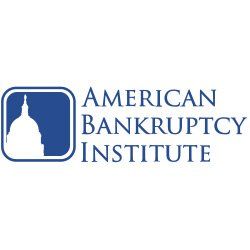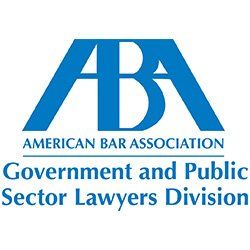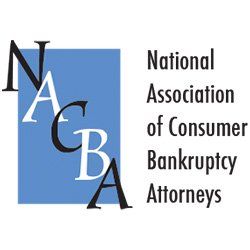The Time Is Now To Protect Your Assets
IT’S NEVER TOO EARLY TO PROTECT YOUR ASSETS
Lawsuits happen.
Whether it’s a business dispute, divorce, car accident, or creditor collection claim, lawsuits can arise unexpectedly from a variety of sources.
Or you or a close family member might be facing the prospect of devastating nursing home costs.
And once these situations arise, it can be too late to adopt an effective asset protection plan.
Unfortunately, many individuals and married couples give little thought to adopting an asset protection plan when “the coast is clear” from these threats, which is exactly when such a plan is most effective.
These plans are designed to protect the property and savings you have worked your entire lifetime to accumulate from claims which may arise years from now.
What is Asset Protection Planning?
In short, asset protection planning involves minimizing the risk that your assets will be vulnerable to the future claims of creditors, spouses, nursing homes and others. The goal of such planning is to discourage and minimize the damage from lawsuits, divorce and the cost of long term care (nursing homes), and to preserve those assets during your lifetime and for your family or other intended beneficiaries after your death. It is important to remember, however, that such planning cannot be used to engage in fraud or conceal assets from creditors.
Why are my Assets at Risk?
Here are some examples of circumstances that can put your assets at risk:
· Lawsuits resulting from business or investment failures and activities, or from injuries to guests at your home, business, rental or vacation property;
· Lawsuits relating to automobile accidents caused by you resulting in serious injury or death;
· Future creditor claims including unanticipated medical bills due to illness or injury;
· Failing to consider the possibility and effect of divorce;
· Improper tax planning;
· Failure to plan for long term care (nursing home) costs; and
· Inadequate insurance coverage.
Are my Assets at Risk after my Death?
Your assets and your financial legacy to your loved ones may remain at risk after your death, due to their own financial circumstances, including:
· Creditor lawsuits and credit card debt
· Divorce
· A surviving spouse remarrying and leaving your assets to a new spouse, rather than to your children
· Business failures
· Reckless spending
Who needs an Asset Protection Plan?
You should consider developing an asset protection plan if you are concerned about:
· Protecting, to the extent ethically and legally possible, your assets (including your home, retirement savings and investments) from your own future creditors and those of your family;
· Protecting your business or investment properties;
· Protecting your personal assets if your business or professional practice gets sued;
· Avoiding devastating Nursing Home Costs in the future;
· Protect your assets in the event your surviving spouse remarries.
Get an Asset Protection Check-Up Now.
Here are a few of the topics you should discuss with your Asset Protection Attorney:
1. Adequate Insurance.
Although it won’t cover every potential risk, Insurance is often your first line of defense. You should review your existing insurance coverage with your agent, including, as applicable, homeowners, auto, “umbrella” coverage, business risk, professional malpractice, directors and officers’ liability, health, disability, life and long term care. Because insurance coverage is limited to the amount of the policy and often excludes many risks, it is usually not advisable to rely on insurance exclusively in lieu of a comprehensive asset protection plan. Asset protection planning should not be a substitute for liability and professional insurance, but rather should supplement insurance.
2. Review the Structure and Operation of your Business and Real Estate Investments.
The use of business entities such as corporations, LLCs (limited liability companies), limited partnerships and limited liability partnerships is a common asset protection planning technique. The business entity should be structured (1) to avoid exposing the business owner personally to the creditors of the business, and (2) to avoid exposing the assets of the business to the claims of an owner’s personal creditors which are unrelated to the business.
These business entities should be a vehicle for the operation of your business activities, and not used as a personal savings account. Their effectiveness in providing asset protection can be compromised by mixing business transactions with personal transactions. It is also important to observe certain “formalities”, such as keeping separate books and records, having a separate business bank account, and signing legal documents in the proper manner.
3. Consider the Use of Trusts for Certain Personal Assets.
Part of your asset protection planning strategy may involve the creation and funding of trusts, including irrevocable and/or revocable trusts. In certain circumstances, it may also be appropriate to consider a Domestic Asset Protection Trust established in a jurisdiction other than Massachusetts or an Offshore Trust. These considerations must obviously be made on a case by case basis and only as part of a comprehensive asset protection plan.
An irrevocable trust is one you cannot amend or revoke after you create it. The primary benefit of this kind of trust is that it may, if properly drafted and funded for a certain period of time in advance of any claim arising, help protect your assets from creditors. If you want to protect your assets from the costs of a nursing home, you will have to create an irrevocable trust.
A so-called living (revocable) trust is a common estate planning tool for transferring assets at death to children and other loved ones. One of the primary reasons trusts are used is to avoid the necessity of having assets tied up in Probate Court (a common misconception is that a Will avoids probate – it does not). Another reason might be to minimize the amount of estate taxes owed upon death, although under current tax laws, estate tax is reserved for the very wealthy.
It is important to note that a revocable living trust typically does not protect your assets from your own creditors; a properly drafted and funded revocable living trust can, however, protect your assets from creditors (including spouses) of your children or other beneficiaries.
4. Start Planning Before a Claim Arises
Many things you can do will effectively provide asset protection before a claim or liability arises, but few things will afterwards. That’s because what you do after a claim arises could be undone by “fraudulent transfer” law. Moreover, the point at which a claim arises is earlier than you might think—it is, for example, usually much earlier than when a demand letter or a process server shows up at the door.
5. Coordinate your Asset Protection Planning with your Tax & Estate Planning
Often asset protection planning and estate planning work together, but sometimes they are at odds and what might be a good idea for estate planning might not help in terms of asset protection. For example, the making of gifts (to children and other prospective heirs) is common in estate planning but can result in a fraudulent transfer claim from an asset planning perspective.
6. Bankruptcy Planning – Even if You Never Need It
Even if you never have to file bankruptcy, it’s smart to plan now, in conjunction with your estate, tax and business planning, before any potential claims against you arise. Here especially advance planning is necessary if you plan to preserve your assets. Bankruptcy is a complex process, full of potential minefields. Without advance planning and execution of an asset protection plan, long before bankruptcy is even a consideration, state homestead exemptions can be substantially limited, and other new provisions in the bankruptcy code and new bankruptcy case law can make parts of asset protection plans very difficult to justify in bankruptcy. Most importantly, you can’t consider filing bankruptcy without making a full and complete disclosure about assets and transfers. The failure to make a full disclosure will usually lead to a denial of discharge, and the failure to make a truthful disclosure can amount to charges of perjury and bankruptcy fraud.
7. Start Simple and Take Advantage of Applicable Law
An Asset Protection Review will focus first on the protections afforded you by the Commonwealth of Massachusetts or federal law. These would include a Declaration of Homestead for your primary residence and a review of any retirement plans to ensure they are exempt from the claims of creditors under Massachusetts law. You and your Asset Protection Attorney should then review your personal property to ensure it is held in a manner which takes full advantage of the Massachusetts exemption statutes.
No matter what your needs are, each protection plan is modified to fit according to protect your assets. Our comprehensive plans are developed by experienced attorneys specifically to preserve and protect your assets.
Contact Evans & Evans, P.C. at (978) 548-5174 for a free, no-obligation review of your assets and existing estate plan.















